The United Kingdom Portal
 |
 |
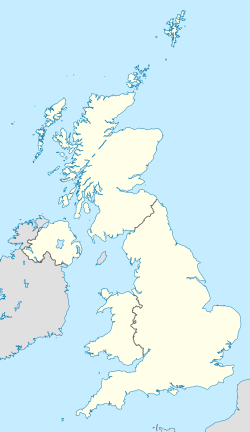
| |
The United Kingdom of Great Britain and Northern Ireland, commonly known as the United Kingdom (UK) or Britain, is a country in Northwestern Europe, off the coast of the continental mainland. It comprises England, Scotland, Wales and Northern Ireland. The UK includes the island of Great Britain, the north-eastern part of the island of Ireland, and most of the smaller islands within the British Isles, covering 94,354 square miles (244,376 km2). Northern Ireland shares a land border with the Republic of Ireland; otherwise, the UK is surrounded by the Atlantic Ocean, the North Sea, the English Channel, the Celtic Sea and the Irish Sea. It maintains sovereignty over the British Overseas Territories, which are located across various oceans and seas globally. The UK had an estimated population of over 68.2 million people in 2023. The capital and largest city of both England and the UK is London. The cities of Edinburgh, Cardiff and Belfast are the national capitals of Scotland, Wales and Northern Ireland respectively.
The UK has been inhabited continuously since the Neolithic. In AD 43 the Roman conquest of Britain began; the Roman departure was followed by Anglo-Saxon settlement. In 1066 the Normans conquered England. With the end of the Wars of the Roses the Kingdom of England stabilised and began to grow in power, resulting by the 16th century in the annexation of Wales and the establishment of the British Empire. Over the course of the 17th century the role of the British monarchy was reduced, particularly as a result of the English Civil War. In 1707 the Kingdom of England and the Kingdom of Scotland united under the Treaty of Union to create the Kingdom of Great Britain. In the Georgian era the office of prime minister became established. The Acts of Union 1800 incorporated the Kingdom of Ireland to create the United Kingdom of Great Britain and Ireland in 1801. Most of Ireland seceded from the UK in 1922 as the Irish Free State, and the Royal and Parliamentary Titles Act 1927 created the present United Kingdom.
The UK became the first industrialised country and was the world's foremost power for the majority of the 19th and early 20th centuries, particularly during the Pax Britannica between 1815 and 1914. The British Empire was the leading economic power for most of the 19th century, a position supported by its agricultural prosperity, its role as a dominant trading nation, a massive industrial capacity, significant technological achievements, and the rise of 19th-century London as the world's principal financial centre. At its height in the 1920s the empire encompassed almost a quarter of the world's landmass and population, and was the largest empire in history. However, its involvement in the First World War and the Second World War damaged Britain's economic power, and a global wave of decolonisation led to the independence of most British colonies. (Full article...)
Featured article
The Local Government Commission for England was the body responsible for reviewing the structure of local government in England from 1992 to 2002. It was established under the Local Government Act 1992 replacing the Local Government Boundary Commission for England. The Commission could be ordered by the Secretary of State to undertake 'structural reviews' in specified areas and recommend the creation of unitary authorities in the two-tier shire counties of England. The Commission, chaired by John Banham, conducted a review of all the non-metropolitan counties of England from 1993 to 1994, making various recommendations on their future. After much political debate and several legal challenges, the Commission's proposals resulted in the abolition of Berkshire county council and the counties of Avon, Cleveland, Hereford and Worcester and Humberside. Combined with a second wave of reviews in 1995, under the chairmanship of David Cooksey, the Commission's proposals led to the creation of unitary authorities covering many urban areas of England. It was replaced by the Boundary Committee for England in 2002, which finished this review cycle in 2004. (Full article...)
Featured biography
Emmeline Pankhurst (1858–1928) was a political activist and leader of the British suffragette movement. Although she was widely criticised for her militant tactics, her work is recognised as a crucial element in achieving women's suffrage in Britain. She became involved with the Women's Franchise League, which advocated suffrage for women. When that organisation broke apart, she joined the left-leaning Independent Labour Party through her friendship with socialist Keir Hardie. After her husband died in 1898, Pankhurst founded the Women's Social and Political Union, an all-women suffrage advocacy organisation dedicated to "deeds, not words". The group quickly became infamous when its members smashed windows and assaulted police officers. Pankhurst, her daughters, and other WSPU activists were sentenced to repeated prison sentences, where they staged hunger strikes to secure better conditions. Eventually arson became a common tactic among WSPU members, and more moderate organisations spoke out against the Pankhurst family. With the advent of World War I, Pankhurst called an immediate halt to militant suffrage activism, in order to support the British government against the "German Peril". They urged women to aid industrial production, and encouraged young men to fight. (Full article...)
General images -
Subportals
WikiProjects
Things you can do
- Visit the British Wikipedians' notice board.
- The noticeboard is the central forum for information and discussion on editing related to the United Kingdom.
- Comment at the British deletion sorting page.
- This page lists deletion discussions on topics relating to the United Kingdom.
Featured pictures
Did you know -

- ... that a yellow-spotted emerald specimen was found for the first time in the United Kingdom in 2018, when a wildlife photographer used Twitter to identify it?
- ... that Southern Water was fined £90 million for deliberately dumping sewage into the sea?
- ... that Liz Shore's nomination to be Chief Medical Officer of the United Kingdom was vetoed by Margaret Thatcher because of Shore's husband's political affiliation?
- ... that the 2023 United Kingdom student protests were organised on TikTok and Snapchat?
- ... that former Scottish Conservative leader Ruth Davidson said that she would swim in Loch Ness naked if the SNP won more than 50 seats at the 2019 United Kingdom general election?
- ... that Oxford is the first city in the United Kingdom to adopt a zero emission zone?
In the news
- 31 August 2025 – Norway–United Kingdom relations
- Norway agrees to purchase at least five new British-made anti-submarine Type 26 frigates for the Royal Norwegian Navy in a £10 billion (US$13.5 billion) deal. The ships will be built by a consortium of companies led by BAE Systems. (AP)
- 29 August 2025 –
- The English Court of Appeal rules that the government may continue housing asylum seekers in a hotel in Epping, Essex, overturning a previous order to relocate them. (The New York Times)
- 28 August 2025 – Russian invasion of Ukraine, Russia–United Kingdom relations
- Kyiv strikes
- The United Kingdom summons Russia's ambassador to the UK, Andrey Kelin, after the British Council's office in Kyiv was heavily damaged and one employee was injured in an overnight Russian attack on Kyiv. (BBC News)
- 26 August 2025 – International sanctions against Iran, Nuclear program of Iran
- Representatives of France, Germany, and the United Kingdom fail to reach an agreement with Iran in Geneva, Switzerland, on avoiding the possible reimposition of UN sanctions under the 2015 nuclear deal's snapback mechanism, following concerns about Iran's compliance. (AP)
- 20 August 2025 – International sanctions during the Russian invasion of Ukraine, Kyrgyzstan–United Kingdom relations
- The United Kingdom imposes sanctions on eight individuals and entities accused of helping Russia evade Western sanctions through financial and cryptocurrency networks, including Kyrgyz firms linked to the ruble-pegged stablecoin A7A5. Kyrgyz president Sadyr Japarov has appealed to the UK regarding the sanctions. (Reuters)
Categories
Other UK-connected Wikipedias
Wikimedia
The following Wikimedia Foundation sister projects provide more on this subject:
-
Commons
Free media repository -
Wikibooks
Free textbooks and manuals -
Wikidata
Free knowledge base -
Wikinews
Free-content news -
Wikiquote
Collection of quotations -
Wikisource
Free-content library -
Wikiversity
Free learning tools -
Wikivoyage
Free travel guide -
Wiktionary
Dictionary and thesaurus














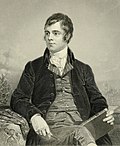











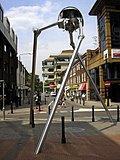

















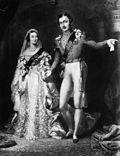









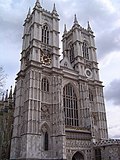






























![Image 4 George IV Artist: Sir Thomas Lawrence An oil on canvas portrait of George IV of the United Kingdom as the Prince Regent, by Sir Thomas Lawrence. In 1814, Lord Stewart, who had been appointed ambassador in Vienna and was a previous client of Thomas Lawrence, wanted to commission a portrait by him of the Prince Regent. He arranged that Lawrence should be presented to the Prince Regent at a levée. Soon after, the Prince visited Lawrence at his studio in Russell Square. Lawrence wrote to his brother that: To crown this honour, [he] engag'd to sit to me at one today and after a successful sitting of two hours, has just left me and comes again tomorrow and the next day. More featured pictures](http://upload.wikimedia.org/wikipedia/commons/thumb/9/9f/George_IV_bust1.jpg/120px-George_IV_bust1.jpg)
























